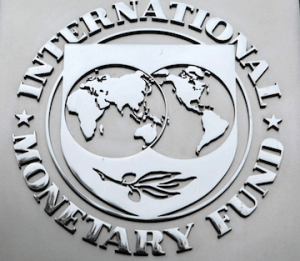IMF warns of another global financial crisis 10 years after
 About 10 years ago, the world was hit with a financial crisis. The crisis started in the United States leading to loss of jobs and homes.
About 10 years ago, the world was hit with a financial crisis. The crisis started in the United States leading to loss of jobs and homes.
This week, the International Monetary Fund (IMF) has warned that the world is at risk of yet another financial crisis.
In the IMF’s October 2018 Global Financial Stability Report, which was released in the run-up to the IMF-World Bank Annual Meetings in Southeast Asia, it found that global near-term risks to financial stability have increased somewhat, reflecting mounting pressures in emerging market economies and escalating trade tensions. These risks, it says, while still moderate, could increase significantly.
An intensification of concerns about emerging markets, a broader rise in trade tensions, the realization of political and policy uncertainty, or a faster-than-expected tightening in monetary normalization could all lead to a sharp tightening in financial conditions, it pointed out.
According to the report, medium-term financial stability risks remain elevated, driven by high non–financial sector leverage in advanced economies and rising external borrowing in emerging markets.
“Although the global banking system is stronger than before the crisis, it is exposed to highly indebted borrowers as well as to opaque and illiquid assets and foreign currency rollover risks,” it warned.
It notes further that, this all raises the urgency for policymakers to step up efforts to boost the financial system’s resilience by completing the financial regulatory reform agenda as well as developing and deploying macroprudential policy tools.
The report also takes stock of global regulatory reform 10 years after the global financial crisis. It reviews the main pre-crisis failings in financial sector oversight and assesses the progress in implementation of the reform agenda designed to address these failings.
It also looks at whether shifts in market structure and risks in the global financial system since the crisis have been in the direction the new regulatory agenda intended, that is, toward greater safety. It finds that the broad agenda set by the international community has given rise to new standards that have contributed to a more resilient financial system—one that is less leveraged, more liquid, and better and more intensively supervised, especially at large banks. The forms of shadow banking more closely related to the global financial crisis have been curtailed, and most countries now have macroprudential authorities and some tools with which to oversee and contain risks to the whole financial system. It identifies areas in which consolidation or further progress is needed and warns against rolling back reforms, which might make the global financial system less safe.
By Emmanuel K. Dogbevi
Copyright ©2018 by Creative Imaginations Publicity
All rights reserved. This news item or any portion thereof may not be reproduced or used in any manner whatsoever without the express written permission of the publisher except for the use of brief quotations in reviews.
